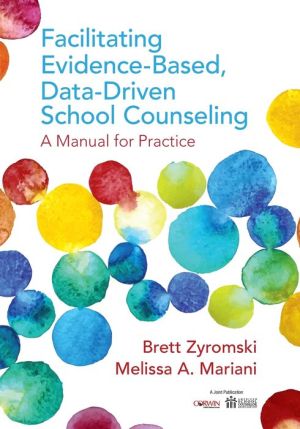I want to get input as to the priority of topics for classroom lessons from teachers but I don't want them telling me what to teach. I know what I need to cover based on the standards. As we are moving to an evidenced based model of intentional counseling, I want to find most of my students who need groups based on data. However, I will still use teacher referrals so I also want their input on what groups they see as being needed. I am trying something new this year, I am asking each grade level team to discuss and just give me one form. They meet several times a week so I am hoping they can find 10 minutes to complete this for me, perhaps after one of their meetings discussing progress monitoring. I usually try to put a survey in Google Forms but since I just want 6 forms it was not worth it.
This blog was created to share experiences and resources with other elementary counselors.
Thursday, May 19, 2016
Tuesday, May 17, 2016
Moving Toward Evidenced-Based School Counseling

Our school district is moving toward evidenced-based materials and practices so our data-driven programs are more effective. Colorado is now using this as part of their definition of an effective counselor as part of their evaluation system, "Effective school counselors employ and adjust evidence-based practices to enhance the equitable access to educational services and programs."
co counselorrubricWe are using Second Step and MindUp to anchor our academic and personal social core curriculum. I welcome comments about what you school is doing regarding evidenced-based programs and practices.
Wednesday, May 11, 2016
DATA Reports
I like the format of the one-page DATA Report from Making DATA Work. I do these reports for each of my 3 program goals. This is my career goal to increase familiarity with the STEM Career Cluster. I share these reports with my administration, Advisory Council, central office supervisor, and others on my school web page.
Friday, May 6, 2016
The Role of School Counselors in Drug Prevention: An Infographic
Guest Post by Tim Wayne
The
need for education about substance abuse is growing more and more urgent: In a
2013 survey of students, illustrated in the infographic below, fewer believe
that the use of marijuana, heroin, or cocaine presents risks. Along with those
numbers comes with the fact that within the past decade, fewer students claim
to have been exposed to prevention messages and programs at school.
Although
students are much more likely to be exposed to drugs and alcohol after they
advance from the elementary grades, elementary school counselors play an
important role by providing drug-prevention messaging and education. Counselors
are essential in orchestrating community support that students need to recognize
the risks of substance abuse.
In
order to protect students from abuse of drugs and alcohol now and in the
future, school counselors of all levels can help their schools by being
proactive in their school’s drug policies, promoting effective prevention
messaging, and inviting a community of parents, local law enforcement, and
youth organizations to assist in their efforts.
Learn
more about substance abuse among youth and the role that school counselors can
play in drug prevention with the infographic below from Bradley University.

Monday, May 2, 2016
Link School Counselors to Mental Health
I was concerned that Children's Mental Health Day would get lost in the promotions for Teacher Appreciation Week. I advocated to our counseling supervisor to get something on the front page of our division's website. I suggested the SAMHSA graphic and part of the ASCA Policy Statement "The School Counselor and Student Mental Health" that was revised in 2015. Above is the screenshot of the main page of our district's website (just below the scrolling pictures of each school's nominee for Teacher of the Year. I think it is critical for counselors to remind stakeholders about various components of our position.
Sunday, May 1, 2016
May 1 is National Mental Health & Dignity Day
School Counselors Role in Mental Health
School counselors
recognize and respond to the need for mental health and behavioral prevention,
early intervention and crisis services that promote psychosocial wellness and
development for all students. School counselors are prepared to address
barriers and to assess ways to maximize students’ success in schools, communities
and their family structure by offering education, prevention, and crisis and
short-term intervention until the student is connected with available community
resources. (ASCA 2015)
Subscribe to:
Posts (Atom)





